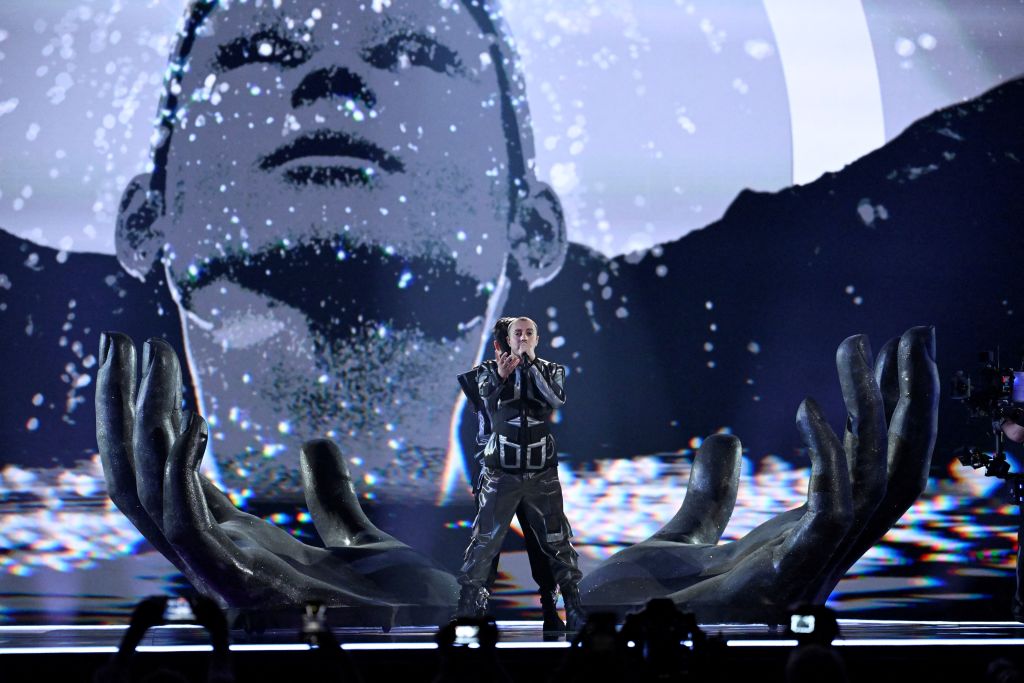Fahree featuring Ilkin Dovlatov representing Azerbaijan with the song “Özunle apar” perform on stage during the first rehearsal for the first semi-final of the 68th edition of the Eurovision Song Contest at the Malmo Arena, in Malmo, Sweden, on May 6, 2024. Credit – Jessica Gow—TT News Agency/AFP/Getty Images
Performers from across Europe and beyond will compete in the first semi-final of the 68th Eurovision Song Contest on Tuesday, amid heightened security prompted by pro-Palestinian protesters objecting to Israel’s participation in the competition.
The international songwriting competition kicked off over the weekend in Malmo, Sweden. The city already expected about 100,000 fans to visit, and amped up security for the event in anticipation of thousands of people protesting Israel’s participation in the contest. Protests are expected to take place Thursday and Saturday, coinciding with the competition’s second semi-final and the grand final, Associated Press reported.
“I think it’s obvious that the world’s insecurity has also affected Eurovision,” Malmo Police Chief Petra Stenkula told BBC a few days before the event began. “In Sweden, and Malmo in particular, there have been protests against Israel taking part in the competition.”
While Stenkula told BBC that there were no specific threats to the contest, additional security officials have been called in from across Sweden, in addition to Denmark and Norway. Some officers may carry larger weapons as a precaution, and officials have also set up cameras around the venue.
Sweden had already been “on a terror level of four out of five,” Stenkula told BBC. The country increased the alert level in August 2023, after a spate of Quran-burning incidents sparked outrage and triggered protests in many Muslim-majority countries.
More than 150 million people from around the world watch Eurovision. Organizers insist the event is apolitical, and recently branded it with the slogan “United by Music.” Organizers have long banned most flags and signs from the contest—the only exceptions are participants’ national flags and the pride flag, meaning that Palestinian flags and pro-Palestinian symbols are not allowed inside the Malmo Arena venue.
Jean Philip De Tender is the deputy director general of the European Broadcasting Union, which organizes the competition, and he told Sky News that barring Israel from the competition “would have been a political decision, and as such (one) which we cannot take.”
Organizers did previously tell Israel to change the lyrics of its song, initially called “October Rain,” because of its apparent reference to Hamas’ Oct. 7 attack that killed about 1,200 Israelis. Organizers had said that they would disqualify participants who didn’t abide by Eurovision’s apolitical nature, according to Reuters. Israeli singer Eden Golan will still perform the song at Eurovision, but it’s since been renamed to “Hurricane,” Associated Press reported.
The war in Gaza has killed nearly 35,000 Palestinians, according to the Hamas-controlled Palestinian Ministry of Health.
Contact us at letters@time.com.
